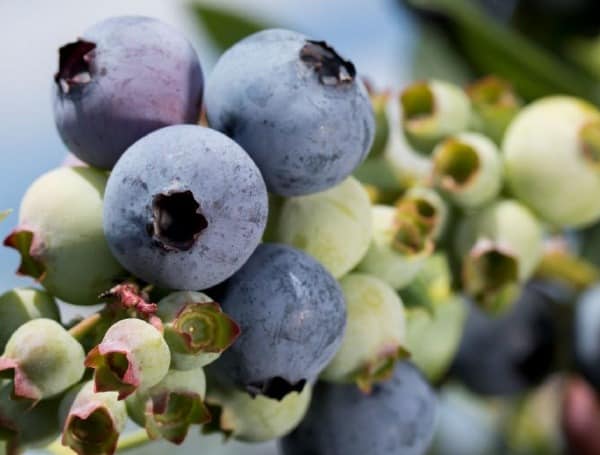They may be called “aromatic” blueberries, but they don’t just smell nice -- they taste good. University of Florida scientists now know why: T

They may be called “aromatic” blueberries, but they don’t just smell nice — they taste good.
University of Florida scientists now know why: These fruits contain just the right genetic combination to produce the chemistry required for a pleasant blueberry flavor.
Growers and consumers always seek better-tasting fruit, compelling blueberry breeders like Patricio Muñoz to work in fields and labs and to use UF taste-test panelists to find the right varieties of blueberry to breed.
“More consumption will increase demand and keep prices up for our growers to stay in business, making profits,” Muñoz said.

Blueberry breeders have long known that the fruit they help grow, classified as “aromatic,” comes with naturally occurring chemical components that make the fruit taste different, said Muñoz, a UF/IFAS associate professor of horticultural sciences.
“These metabolites are in a category we call ‘volatile organic compounds,’ because they explode with fruit flavor when you crunch the fruit in your mouth,” he said.
To find where the flavor starts, scientists must find the right genes that control these compounds.
Haley Sater, a doctoral graduate from the UF/IFAS College of Agricultural and Life Sciences, led the research, under the supervision of Muñoz.
In the news: Florida Planned Parenthood Sits Out Crist-Fried Race
The new study combines information from UF sensory panels with biochemical and molecular information. Through the research, scientists identified potential candidate genes that control the production of terpenes in some types of blueberries. Terpenes are aromatic compounds found in many plants.
To reach their findings, scientists selected two groups of blueberry varieties. In the first group were a few traditional blueberry varieties; in the second group, researchers selected aromatic varieties.
Then, Charles Sims, a professor of food science and human nutrition, conducted a taste-testing panel.
Sims asked the tasters whether they could detect any special traits in the blueberries, and if so, to describe them. They also asked the tasters if they liked the fruit.

The results: Consumers correctly detected the special aromatic blueberries, and they described them, using different words such as “floral,” “fruity,” “blueberry (flavor),” “strong” and more. Most tasters liked the blueberries.
“Once we analyzed the data of the panel, we saw consumers like these aromatic blueberry varieties more than the non-aromatics,” Muñoz said. “Once we had this information, we tried to understand where this characteristic originated.”
That’s when scientists put molecular marker information together with data on volatile organic compounds. Researchers discovered the aromatic varieties contained more of the terpenes, which provide aroma related to floral, sweet, citrus and fresh.
“Now we know why these blueberry varieties make the fruit aromatic,” Muñoz said. “We now have the capacity to use these compounds to formally classify varieties as aromatics. We can predict consumer liking and preference for these varieties.”
In addition to Muñoz, Sims and Sater, Felipe Ferrao, a research assistant scientist for Munoz, was among the scientists who helped with the study.
Visit Tampafp.com for Politics, Tampa Area Local News, Sports, and National Headlines. Support journalism by clicking here to our GiveSendGo or sign up for our free newsletter by clicking here.
Android Users, Click Here To Download The Free Press App And Never Miss A Story. Follow Us On Facebook Here Or Twitter Here.
Copyright 2022 The Free Press, LLC, tampafp.com. All rights reserved. This material may not be published, broadcast, rewritten, or redistributed.
